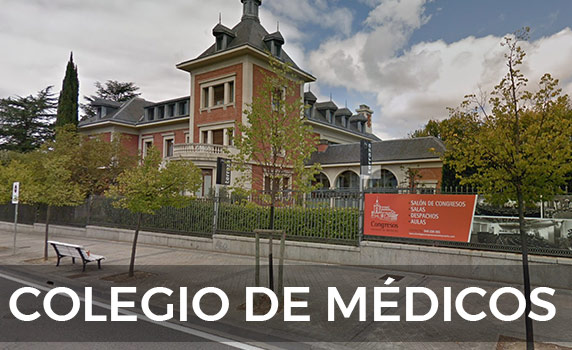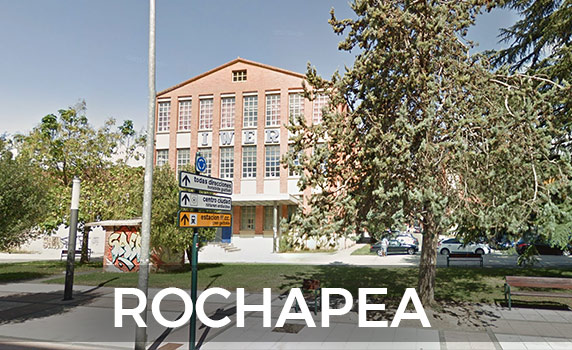Nuestros Centros
- +34 948 172 391
- +34 948 045 019

Por favor completa todos los campos indicados abajo. El Email deberá ser el EMAIL CORPORATIVO para realizar la prueba.
Prueba de Inglés
Límite de tiempo: 0
SUmario del cuestionario
0 de 8 preguntas completado
Preguntas:
- 1
- 2
- 3
- 4
- 5
- 6
- 7
- 8
Información
Antes de realizar la prueba de nivel de inglés, debes facilitarnos tus datos personales: nombre, apellidos, edad y correo electrónico de contacto.
La prueba de nivel que vas a realizar tiene cinco páginas en las que deberás responder a 100 preguntas con un nivel creciente en dificultad. De las cuatro respuestas que te proponemos, solo una es la correcta. Cuando finalices cada página debes pinchar la pestaña «Siguiente página» para continuar con el ejercicio.
En la última página debes pinchar sobre la pestaña «Enviar prueba de nivel» para finalizar tu prueba y hacernos llegar el ejercicio. En ese mismo instante sabrás si se ha enviado correctamente y conocerás tu nivel de inglés. Ánimo, ¡¡¡disfrutarás aprendiendo!!!
|
Debes escribir un texto |
|
|
Debes escribir un texto |
|
|
Debes escribir un texto |
|
|
Debes escribir una direcccion de email correcta |
|
|
Debes completar esta casilla |
|
|
Debes completar esta casilla |
Ya has realizado este cuestionario antes. Por tanto, no puedes empezarlo otra vez.
Cargando el cuestionario...
Debes ser un usuario registrado para poder realizar el cuestionario.
Tienes que terminar antes el siguiente cuestionario, para iniciar este cuestionario:
Resultados
0 de 8 preguntas contestadas correctamente
El tiempo se ha terminado
Has conseguido 0 de 0 puntos posibles (0)
Categorías
- No asignada a ninguna categoría 0%
-
Tu prueba de nivel se ha enviado correctamente.
Gracias por enviarnos tu prueba. Si deseas matricularte, por favor, contacta con nosotros en el teléfono 948 172 391, envíanos un mail a recepcion@clencollege.com o pichando aquí: contacto
- 1
- 2
- 3
- 4
- 5
- 6
- 7
- 8
- Contestada
- Revisada
-
Pregunta 1 de 8
1. Pregunta
Andreo is a student at International House. He meets a friend, Greta, in the school garden.
Read their conversation. Some words have letters missing. Fill in each gap with the missing letters to make one word.-
Andreo i (s) twenty years old. He lives i (n) Switzerland. He is learning English.
 Hi, Greta, are you a student here?
Hi, Greta, are you a student here?
 No, I'm visiting m (y) sister.
No, I'm visiting m (y) sister.
 D (oes) she work here?
D (oes) she work here?
 No, she's studying English here at International House.
No, she's studying English here at International House.
 Oh, really. Is she enjoying the lessons?
Oh, really. Is she enjoying the lessons?
 Yes, she says they're a l (ot) of fun. But she d (oes, oesn't) like the homework. She says it's boring.
Yes, she says they're a l (ot) of fun. But she d (oes, oesn't) like the homework. She says it's boring.
 Yes, but too much work is better t (han) too little. Greta, it's very hot. W (ould) you like a drink?
Yes, but too much work is better t (han) too little. Greta, it's very hot. W (ould) you like a drink?
 Good idea. What a (bout) that new café on the corner? The drinks there aren't too expensiv.
Good idea. What a (bout) that new café on the corner? The drinks there aren't too expensiv.
 OK, I'll just g (et, rab) my bag.
OK, I'll just g (et, rab) my bag.
Correcto 10 / 10PuntosIncorrecto / 10 Puntos -
Andreo i (s) twenty years old. He lives i (n) Switzerland. He is learning English.
-
Pregunta 2 de 8
2. Pregunta
Fill in each gap with ONE suitable word on your separate Answer Sheet
-
Flora is a student who is having a holiday in Hungary. She is writing a letter to her friend Stefano.

Hi Stefano,We arrived here in Budapest two days (ago). It was very cold and wet here (on) Saturday, but yesterday and today it has (been, got, become) warmer. I like the sun!. We (have) already visited many places. Yesterday we (went, travelled) to Szentendre by train. We couldn't see everything in the town (because, as, since) we didn't have enough time. We (would, should, since) like to go back there tomorrow. Tonight we have bought tickets (for, to) the cinema.
I will phone you when I get back (next) week. Flora.
Correcto 9 / 9PuntosIncorrecto / 9 Puntos -
-
Pregunta 3 de 8
3. Pregunta
Choose only one option
- Flora is (on) (options: in, to, on, with) holiday. On her first visit she didn't see the (whole) (options: whole, total, all, every) town. Flora is (going) (options: travelling, going, coming, seeing) out to the cinema this evening.
Correcto 3 / 3PuntosIncorrecto / 3 Puntos -
Pregunta 4 de 8
4. Pregunta
Fill in each gap with ONE suitable word on your separate Answer Sheet.
-
The following text is about American pioneers.
During the 19th century, European settlers travelled across America. They wanted (to) find land to farm. They (were) called pioneers. Most ofthem travelled in long wagon trains stretching as far (as) the eye could see. The wagons were packed with food, tools and household goods. (there, There) was only space for small children, the sick and some women to ride (in, on) the wagons. Everyone else walked alongside. In heat, dust and snow, the pioneers crossed prairies. They climbed mountains (and) lived and slept outdoors. They often went short of food and water. The pioneers also faced attacks from Native Americans (who) didn’t want the Europeans to take their land from (them). When the pioneers came to set up home, they had (to) build theirown houses. Some made them out of wood, but others used pieces of dry earth, cut (from) the ground.
Correcto 10 / 10PuntosIncorrecto / 10 Puntos -
The following text is about American pioneers.
-
Pregunta 5 de 8
5. Pregunta
Fill in the gaps about the American pioneers.
- The pioneers (had) (options: had, must, have, did) to travel to America by ship. The journey in the wagons (was) (options: were, made, was, could) uncomfortable. The pioneers (defended) (options: attracked, defended, saved, fought) themselves against the Native Americans. All through the 19th century, pioneers in America (did) (options: had, must, have, did) their houses. The pioneers wanted to (come) (options: go, come, leave, depart) Europe.
Correcto 5 / 5PuntosIncorrecto / 5 Puntos -
Pregunta 6 de 8
6. Pregunta
Fill in each gap with ONE suitable word on your separate answer sheet.
- Surveys show that in the USA one in seven people speaks a foreign language other than English at home. In the past, second generation children were usually encouraged to adopt the customs, culture and language of whatever was identified as the majority culture. Today, people (are) much more likely to promote bilingualism. There are different theories on the best way to teach a child to use two languages. Most researchers agree that a child who is exposed to two languages (at, from) an early age will naturally learn to use (both, them). Children may be expected to go (through) some periods of mixing the two languages, sometimes even within the same sentence. A separation of the two languages will occur gradually. Children may also experiment with the two languages to create special effects or (to) express themselves in specific settings. For example, (one) language may be considered less formal and used for information about events related to home and family, while the (other) is considered more formal and used in activities outside the home. Lessconfusion will occur if children learn over time to associate the each language with a different context, (for) instance, one language could be used to speak to the mother and one to speak to the father.
Correcto 8 / 8PuntosIncorrecto / 8 Puntos -
Pregunta 7 de 8
7. Pregunta
Choose only one option.
- In the (initial) (options: subsequent, initial, consequent, final) stages, children may mix the languages. Children may (regard) (options: dismiss, regard, realise, suppose) one language as a home language only. Only if two languages are spoken at home, (can) (options: then, all, however, can) children become genuinely bilingual. Many parents desire their children (to be) (options: being, to be, be, have) bilingual.
Correcto 4 / 4PuntosIncorrecto / 4 Puntos -
Pregunta 8 de 8
8. Pregunta
Fill in each gap with ONE suitable word on your separate Answer Sheet.
- SOAP OPERAS The sheer popularity of soap operas has meant that academic interest was captured the moment soap operas appeared on the world’s television screens. Given their ability to enhance your sense of love, romance and personal success through vicarious experience, soap operas have been defined as cultural fantasies mediating viewers’ realities. In short, they give the viewer the opportunity to experience life (without) having to deal themselves with the risks and problems. Now soap operas are receiving renewed interest from media specialists. Some have launched an ambitious international survey aimed at fully investigating the nature of serial dramas and their impact on audiences around the world. A brief history of the genre is also being planned and there are hopes to produce a continent (by, to) continent description of the legacy of the soap opera, together (with) short analyses of individual countries. (It, it) is hoped that studying plot summaries of series that have been particularly popular in each country will give an approximate picture of worldwide tendencies and clues to the underlying success of this genre. Technological and financial factors, (which) are key determinants of the quality and volume of soap opera programming, are other essential elements to be researched. One issue that researchers have focused attention on is the extent to which a country's serial drama offerings are indigenous or imported. A great number of less wealthy countries cannot afford to produce programmes by (themselves) and subsequently import another country’s output. (although, Although, Though, thought, While, while) soap operas are a form of light entertainment centred around apparently trivial and innocuous story lines, they actually pose a threat to the importing country’s culture. One of the unfortunate ramifications of importing another country’s programming is that you also import that country’s cultural values. These dramas, then, are a key feature in the process of cultural imperialism. Despite this, the conclusion is (that), particularly in developing nations, the cultural legacy of soap operas has largely been positive - far more positive, in fact, than the genre's reputation as an especially "lowbrow" form of entertainment might lead us to believe. (Because, because, As, as, Since, since) they draw large audiences, soaps have proven to be a highly effective medium of educational messaging. The example of Latin American governments demonstrates the genre’s potential to address such concerns as literacy and sexual health. In particular, countries like Mexico and Brazil have had remarkable success promoting social campaigns by including them (in, within) the story lines of serial dramas. Consequently, as these two countries are among the world's most prolific exporters of soaps, (their, this, such) educational messaging is often transmitted around the globe.
Correcto 11 / 11PuntosIncorrecto / 11 Puntos












